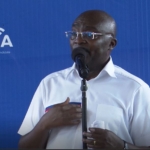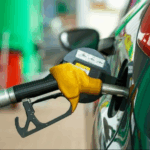
The New Patriotic Party (NPP) has just come out of a debilitating, embarrassing and absolute shellacking of a presidential election. The party needs to rebuild, reinvent and re-engineer itself into a broad-based national coalition—open and acceptable to all groups and backgrounds—rather than narrow, close up or constrict its outlook. If numbers are the oxygen of elections, then we all know the NPP needs this lifesaver now more than ever.
You may not notice it, but we have just witnessed an upheaval and recalibration of Ghana’s political landscape. Choice is no longer defined by old, time-worn emotional and sentimental feelings or attachments to tribe, but by who represents the best interests of the people. For the NPP to remain relevant, it must open up. People should feel a sense of belonging, not alienation from the party.
Dr Bawumia presents the party with a prime opportunity to embody a more open, more united, more multi-ethnic, more multicultural and more collectivist-minded NPP—one that welcomes people of all groups, identities, ethnicities and lineages, ready to forge ahead in unity toward a common goal of transforming the nation. Dr Bawumia represents a unique opportunity to send the strongest signal that the party is open to all and ready to embrace anyone irrespective of tribal or ethnic heritage. This is the invisible blockade the party needs to break. It is time to move away from the politics of tribalism and division and embrace the politics of unity, diversity and harmony—politics that will help move Africa to the next level.
By electing a truly competent and experienced candidate from a non-majority group, the NPP would send a strong signal that it is genuinely open and ready to become a mass-based, nationally oriented party that embraces Ghanaians of all backgrounds. Of course, this selection should be based on merit and on who has the best solutions to transform the nation. A candidate with empathy, care, sensitivity to the plight of everyday Ghanaians, and a realistic roadmap for national transformation. The party must recognise that its appeal to Ghanaians will be defined primarily by its ability to offer solutions to their needs and challenges. Culture and ethnicity should be celebrated, not denigrated. Appreciating each other’s heritage, diversity and cross-cultural values can foster understanding, build empathy, unite people toward a common cause, promote peace and enhance development.
If there is anything the party needs now more than ever, it is to shed the tag—real or perceived—that it is an Akan-based party. We are all aware this is a label the party has struggled to shake over the years. The nation has changed. Politics has changed. And the earlier the NPP accepts that people now choose leaders based on who best represents their interests—not which festival they celebrate or which ancestor they share—the better. The party’s fidelity must be to equality, to what binds us together as a nation, and to the set of beliefs that will transform Ghana, not a fixation on what divides us.



